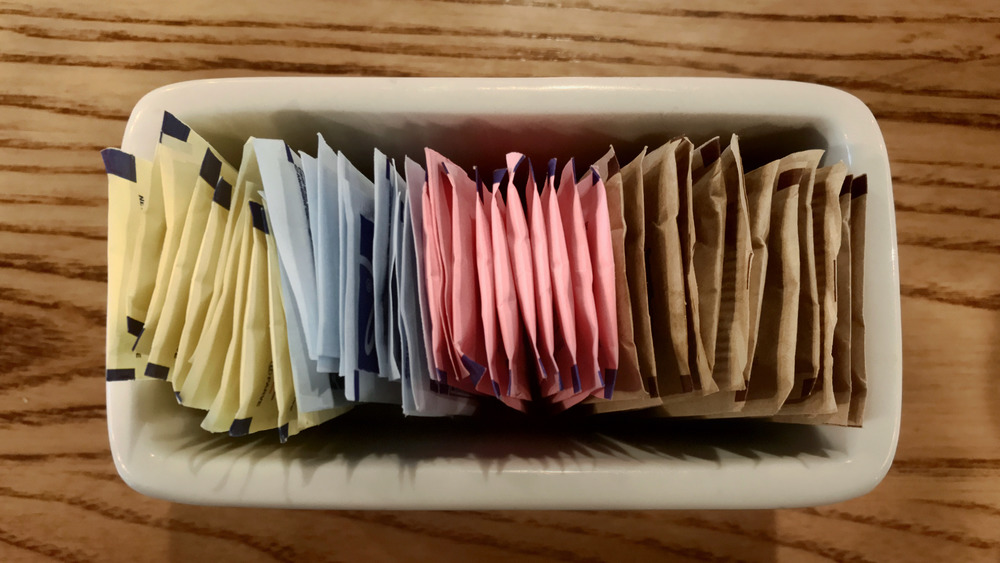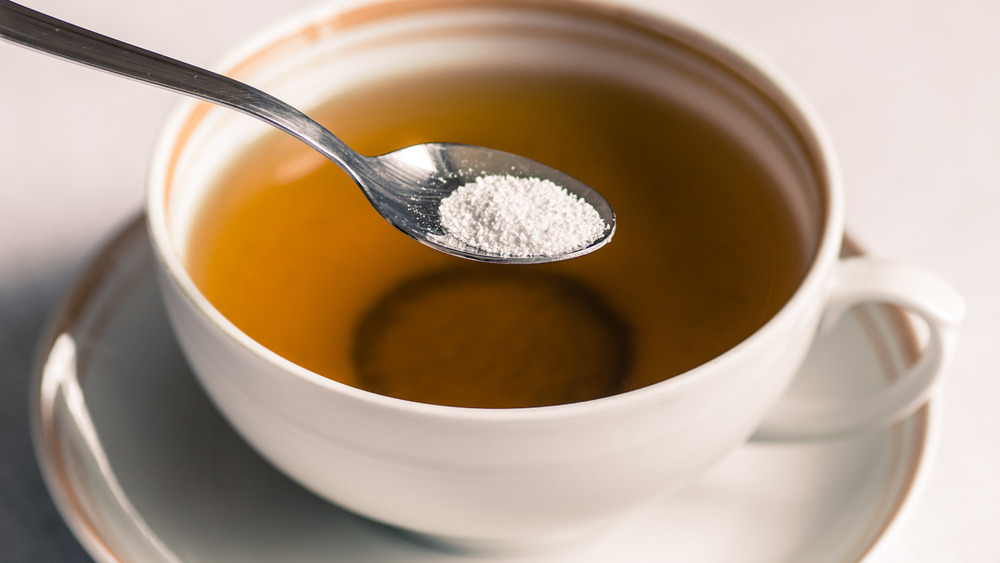One Artificial Sweetener Doesn't Seem To Cause Diabetes In Adults, Study Finds
Artificial sweeteners are thought to be a great sugar substitute if you want to cut down on calories or avoid sugar, but there have been concerns that they could actually increase someone's chances of developing type 2 diabetes. There is some good news about saccharin, though. It's an artificial sweetener commonly sold under the brand name Sweet'N Low.
Saccharin may not lead to type 2 diabetes as was previously thought, according to a January 2021 study published in Microbiome. Researchers looked at 46 healthy participants' glucose tolerance and gut health over two weeks.
Researchers separated participants into four different groups with one given saccharin, one a placebo, one lactisole — an ingredient that reduces the taste of sweetness — and one a combination of lactisole and saccharin. The participants getting the saccharin were given the maximum acceptable daily intake — 400 milligrams. According to the FDA, a 132-pound person would need to have 45 packets of saccharin in one day to meet the maximum acceptable daily intake, which is way more than most people consume in a day.
Researchers also studied the effects of saccharin with mice for 10 weeks by adding it to their water. Both studies in healthy humans and mice found no adverse effects on gut health and glucose tolerance, meaning it's likely that consuming saccharin does not lead to type 2 diabetes in healthy people.
What is saccharin?
Saccharin is a zero-calorie sweetener approved by the FDA for use as a sugar substitute. You can use it in your tea or coffee if you're looking for some sweetness but aren't interested in adding sugar. You can also find it in diet sodas and foods with no sugar like candies and baked goods. Saccharin is also used in some kinds of toothpaste, mouth rinses, and chewing gum.
You won't need as much Sweet'N Low as you do sugar because it's up to 700 times sweeter. So, if you are used to 4 teaspoons of sugar in your coffee, you may only need a fraction of that if you're using saccharin. Other brand names for saccharin are Necta Sweet, Sweet Twin, and Sweet'N Low.
Any foods or drinks containing saccharin used to be required to have a warning label saying that it could cause bladder cancer due to some studies done in the 1970s on rats. Later studies in humans found that saccharin doesn't have the same health effect that it does in rats, and they were allowed to drop the warning labels.
There will likely be future studies. More research is needed to determine the health effects of long-term saccharin consumption, as this study only looked at a limited number of participants over two weeks, but the results were promising.


